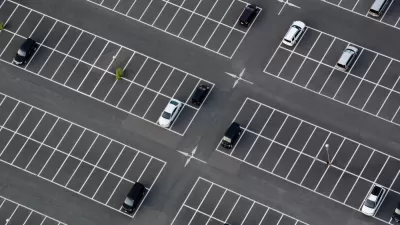Patrick Doyle makes a persuasive argument for alleviating Boston's parking problems by raising the rates at the city's overly cheap parking meters.
Beginning in the late 1970s Boston froze the number of off-street parking spaces in several downtown neighborhoods to comply with the Clean Air Act. Sounds like a good idea right? Unfortunately, the cap has created the second-most-expensive parking garages in America, while rates at parking meters have barely budged over the last two decades, resulting in a mad scramble for street spots.
"The steep costs at our garages mean that only the well-off and the truly
desperate ever wind up parking in them," explains Doyle. "The rest of us find ourselves
in a never-ending chase for metered street parking, which is an absolute
steal...The $10-an-hour difference between a
garage and a metered spot in Boston gives 'drivers a license to hunt,'
says Mark Chase, a local parking consultant,'but it's not a guarantee of
a parking place.' The result, naturally, is congestion."
So what should be done? Follow the lead of San Francisco and institute a dynamic pricing system suggests Doyle. But that's not all, he also recommends making people pay for residential parking permits.
Would making parking easier conflict with the city's goal of getting people to take transit or bicycles? Perhaps. But for Doyle, that's not realistic. "No matter how great the T and Hubway are, a good portion of the
population will need to drive in the city, which is why we need to make
parking easier."
FULL STORY: Cheap Lot

Alabama: Trump Terminates Settlements for Black Communities Harmed By Raw Sewage
Trump deemed the landmark civil rights agreement “illegal DEI and environmental justice policy.”

Planetizen Federal Action Tracker
A weekly monitor of how Trump’s orders and actions are impacting planners and planning in America.

Why Should We Subsidize Public Transportation?
Many public transit agencies face financial stress due to rising costs, declining fare revenue, and declining subsidies. Transit advocates must provide a strong business case for increasing public transit funding.

Understanding Road Diets
An explainer from Momentum highlights the advantages of reducing vehicle lanes in favor of more bike, transit, and pedestrian infrastructure.

New California Law Regulates Warehouse Pollution
A new law tightens building and emissions regulations for large distribution warehouses to mitigate air pollution and traffic in surrounding communities.

Phoenix Announces Opening Date for Light Rail Extension
The South Central extension will connect South Phoenix to downtown and other major hubs starting on June 7.
Urban Design for Planners 1: Software Tools
This six-course series explores essential urban design concepts using open source software and equips planners with the tools they need to participate fully in the urban design process.
Planning for Universal Design
Learn the tools for implementing Universal Design in planning regulations.
Caltrans
Smith Gee Studio
Institute for Housing and Urban Development Studies (IHS)
City of Grandview
Harvard GSD Executive Education
Toledo-Lucas County Plan Commissions
Salt Lake City
NYU Wagner Graduate School of Public Service




























